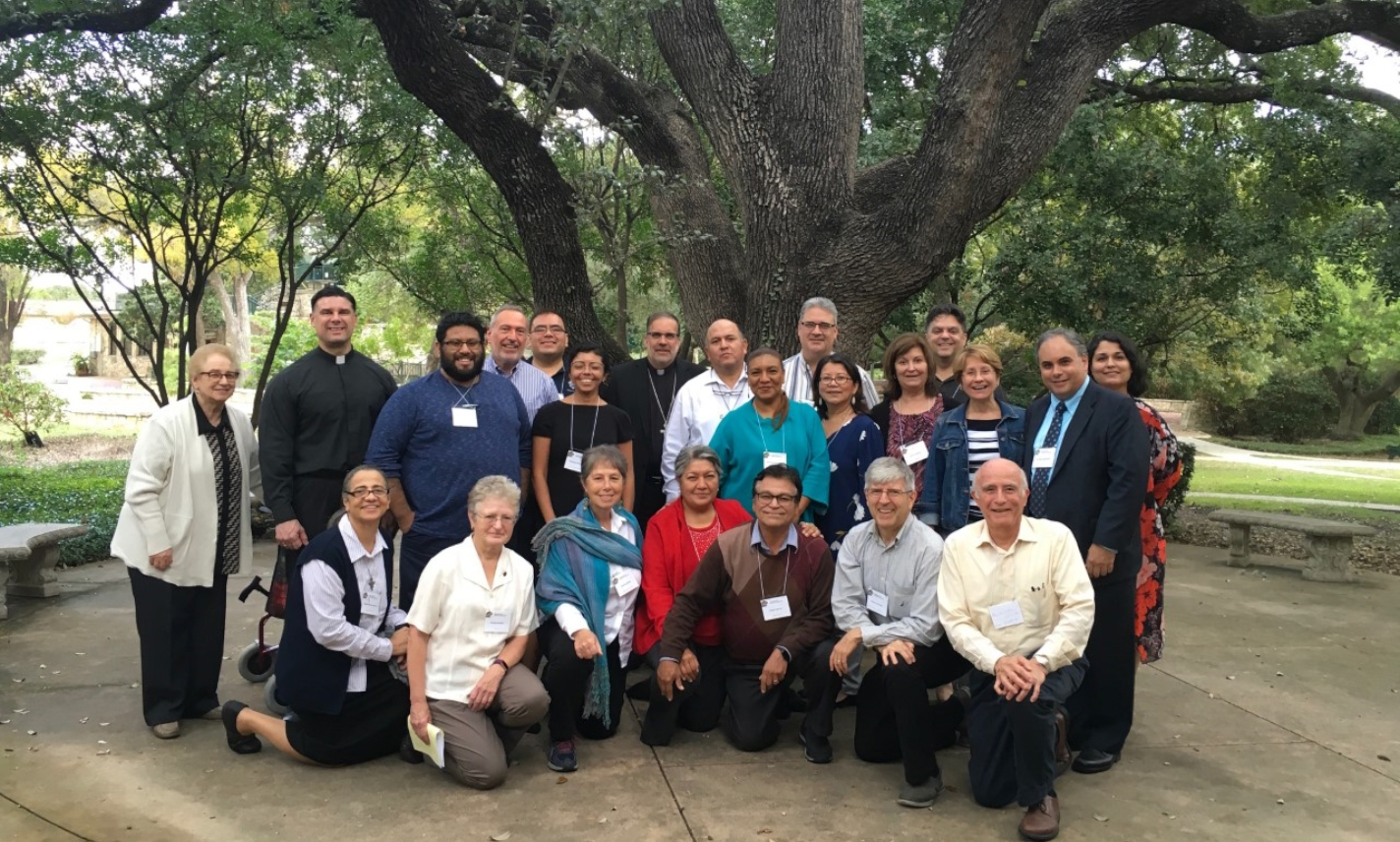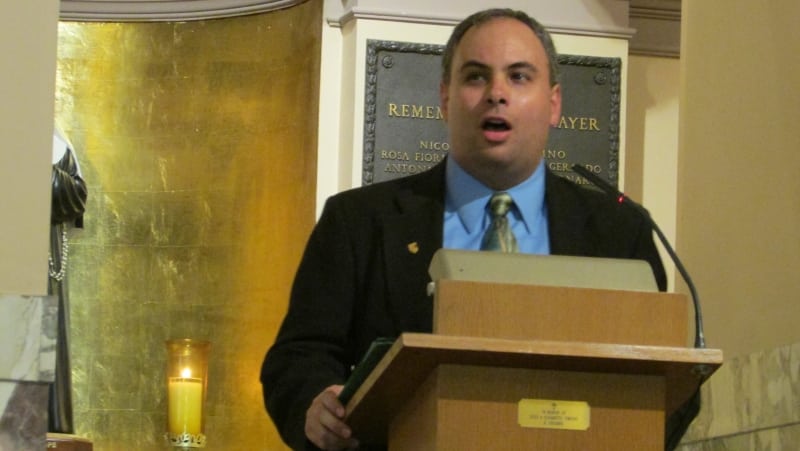You may be familiar with a very funny and well known skit performed by the professional comedians, Bud Abbott and Lou Costello. It is called “Who’s on First?” and it involves a very intricate and confusing conversation between the two which goes on for 10 minutes. Talking about players on a baseball team, Abbott says that they sometimes give ball players strange names and proceeds to name the players on the team “Who is on first,” “What’s on second” “ I Don’t Know is on third,” and so forth. Costello misunderstands what he is saying and thinks he is asking questions “Who is on first?” instead of making statements. Rather than clarify what they are saying to each other, hijinks of language ensue for in the skit that has become one of the most famous comedy sketches of all time.
Abbott and Costello used the same words but meant different things by them. Today’s readings could be a reminder to them, and are to us, of the importance of good communication! AND that communication comes just as much through actions as through words.
Paul’s second letter to the Corinthians reminds us we are ambassadors for Christ. God is issuing an appeal for reconciliation. God wants to bring about a new creation and through Christ has begun and completed that work himself. We’re invited to live our lives in the knowledge that we are called to share in and respond to that call for peace and reconciliation wherever we find ourselves.
In our time, people are always listening to words and seeing if the actions we do match them; it seems there can be so much hypocrisy in our world today, where people say good things but don’t live it out or believe that what applies to everyone else doesn’t apply to them. Paul was aware of those all too human tendencies, and so reminds us what great things God has already done for us in Christ, and how all we have to do is live it. As the British writer William J. Toms famously wrote: “Be careful how you live. You may be the only Bible someone ever reads.” It seems that Toms and St. Paul were on the same wavelength.
The psalm makes the straightforward claim – “The Lord is kind and merciful” but makes it clear that it is God’s ACTIONS on behalf of his people are the reason the people trust God’s own words about kindness, mercy, righteousness and justice. God has been merciful and righteous and just and so the words mean something when God speaks them.
Finally, in the Gospel, Jesus reminds us of a truth which philosophers have spoken since ancient times – “Lies are words, words, words. Truth is singular.” That’s not a criticism of nuance and careful speech. Rather Jesus says don’t take oaths about things you don’t have control of to begin with. You can’t swear by God’s throne. It’s not yours. Nor is Jerusalem. Nor is, even, your own head. Not even your life is yours. All is God’s, and all is gift.
So recognize that and speak from that disposition of truth – that all we have is God’s – and we will always be deeply aware of the truth we speak and live. There is a famous African American phrase about belonging to, and being in relationship with God, that speaks this truth in another way: “Always remember who you are and WHOSE you are.” A reminder that our ‘Yes’ and ‘No’ will always be truthful when we come to know our role in God’s plan, and remind ourselves that we are the beloved of God.
As we pray, today, then, maybe we should ask “Who’s on first?” in our hearts and lives, and pray for the outpouring of God’s grace to always remember who we are and WHOSE we are on God’s team – which is each and everyone of us.
God give you peace!
+ + +
As Director of Certification for Ecclesial Ministry and Service at the United States Conference of Catholic Bishops (USCCB), I have the opportunity to record video reflections on the readings of the Scriptures proclaimed at daily Mass. I do so as part of larger group of colleagues at the Conference, along with lay and ordained leaders from around the country. I am grateful for the opportunity to reflect on the meaning of the readings for the life of faith today and to share them here, along with the written text of the reflections. To view these video reflections for past and upcoming celebrations of the Eucharist, visit the USCCB website.


 Request Dr. DelMonico's professional services for a liturgical, ministerial or leadership consultation, or for an academic or public presentation.
Request Dr. DelMonico's professional services for a liturgical, ministerial or leadership consultation, or for an academic or public presentation.